Leora J. Goodin
I'm a blogger dedicated to sharing insights on lifestyle and wellness. Through personal stories and practical tips, I aim to inspire and empower my readers to lead healthier, more fulfilling lives.
Students and teachers save a massive 71% on Creative Cloud All Apps
Black Friday and Cyber Monday 2023 Deals for Motion Designers, grab it now!
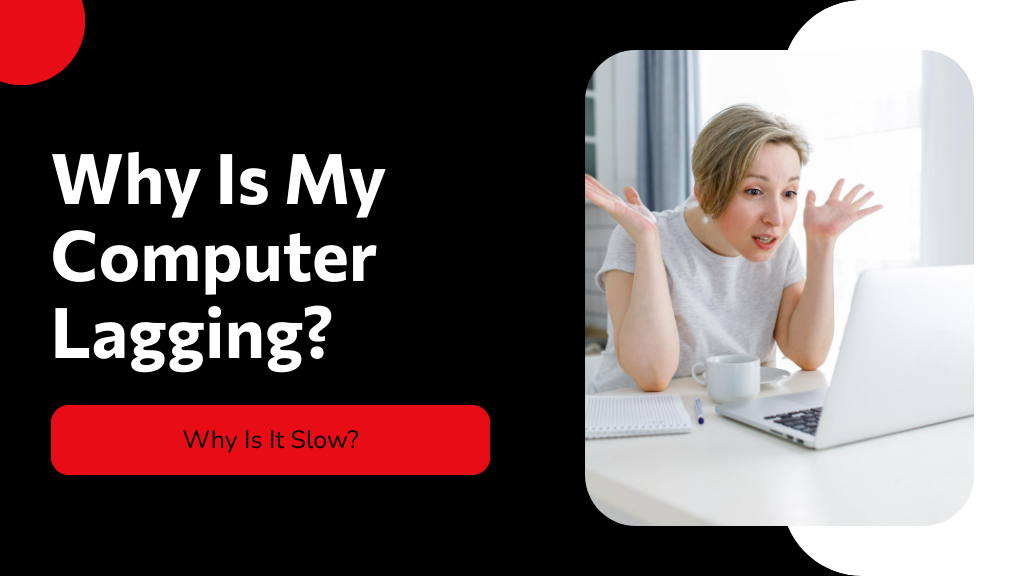
Curious why your computer drags its feet? Discover reasons, from overloaded resources to malware, that could be slowing down your system. Learn how to fix it.

Your computer could be lagging due tooverloaded system resources or outdated hardware and software. If you're running too many apps or if your equipment is aging, you'll notice a slowdown. Additionally, insufficient RAM and storage space, along with malware, can severely affect performance. Consider checking for background programs that might be eating up your system's capacity. Exploring these factors will give you a clearer idea of what's causing the lag and how to address it.
When too many applications are running simultaneously, your computer's performance might suffer because it strains the available system resources.
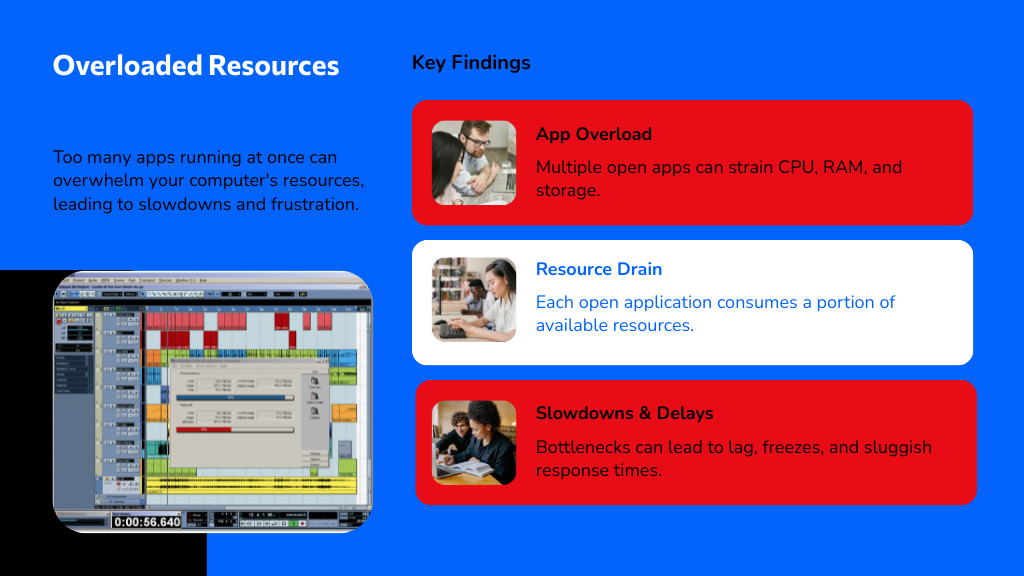
You might wonder, "Why is my computer lagging?" or "Why is my PC lagging?" The answer often lies in overloaded system resources. Each open application consumes a slice of your CPU, memory, and disk space.
When you're juggling multiple heavy programs, like video editing software alongside dozens of browser tabs, your system can't keep up. This bottleneck results in frustrating delays and a sluggish response.
To alleviate this, you can close unnecessary programs and monitor your resource usage through the task manager. Managing what's active on your computer is key to keeping it running smoothly.
If your computer's hardware isn't up to date, you might face compatibility issues that slow down your system. Regular updates can prevent these problems and boost your computer's performance. Make sure your software meets the latest update requirements to keep everything running smoothly.
Although your computer was top-of-the-line at purchase, outdated hardware and software can lead to performance issues as technology evolves.
The speed and efficiency of newer applications might surpass your system's capabilities, causing lag. For instance, if you've got an older processor that can't keep up with the latest software demands, you'll notice slowdowns and crashes.
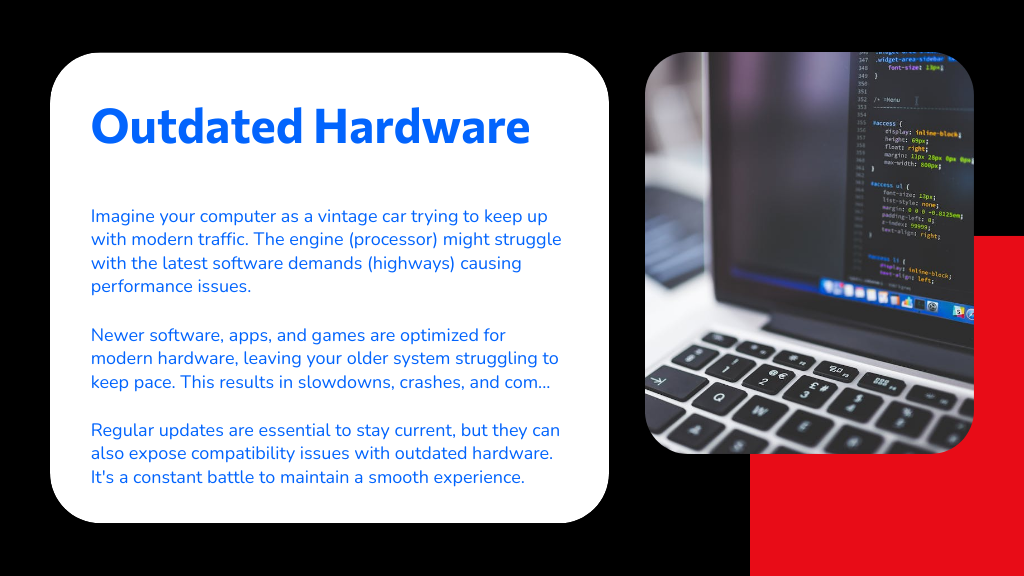
Similarly, older graphics cards may struggle with new multimedia tasks or games. It's not just about age; compatibility matters too.
New operating systems may not support your vintage hardware, forcing your system into a constant catch-up mode. You're stuck in a cycle where you can't take full advantage of new updates and features, leaving your machine lagging behind others.
Despite the challenges of outdated hardware, regularly updating your system can greatly enhance your computer's performance. By keeping your software current, you're not only patching security vulnerabilities but also gaining optimizations that developers continuously integrate into updates.
This can help your aging machine cope better with newer software demands, smoothing out those frustrating lag issues. Furthermore, updates often include bug fixes that resolve underlying issues, which could be slowing your computer down.
Don't overlook the benefit of updated features that improve user experience and functionality, fundamentally allowing you to do more with the same old hardware. While it's no miracle cure for severely outdated systems, staying updated is a straightforward step to maintain a more reliable and efficient computer.
While keeping your software up-to-date is essential, you'll sometimes find that your hardware can't meet the newest software requirements. This mismatch can lead to significant lag, as your system struggles to cope with advanced features intended for newer hardware.
Here's what you need to know:
If you're noticing that your computer struggles to keep up, it might be because you're hitting the limits of your RAM capacity. When RAM is maxed out, your system has to rely more on slower hard drive storage, which can considerably slow down processing times.
Additionally, if your storage is too full, it doesn't just affect file saving; it can also degrade overallsystem performance.
When your computer starts to lag, it's often because you're running out of RAM or storage space. RAM, or Random Access Memory, acts as your system's short-term memory, momentarily holding data for quick access.
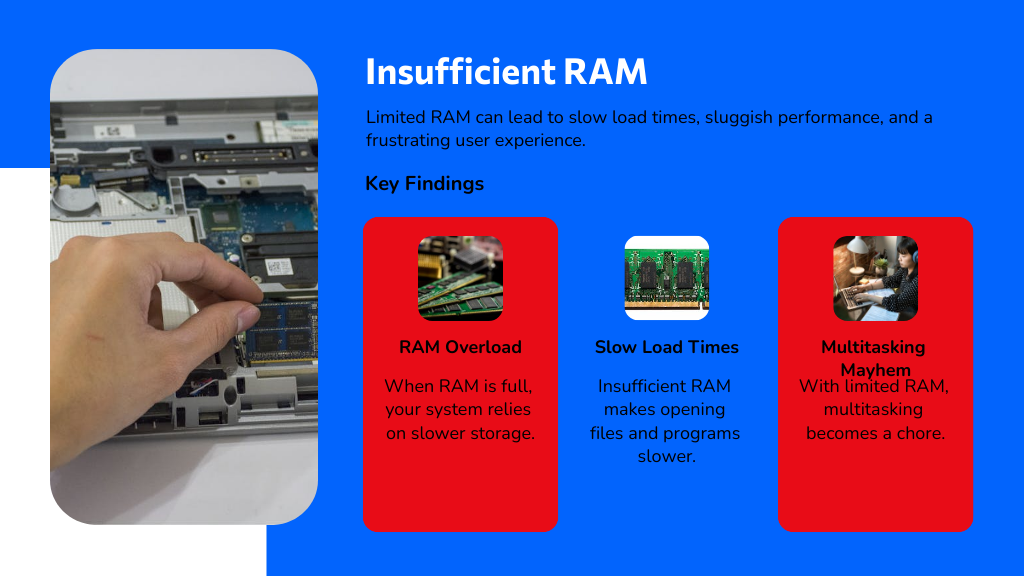
Here's how insufficient RAM can slow you down:
Upgrading your RAM could be a straightforward solution to reduce lag.
As your computer's storage becomes overburdened, you'll notice a marked decrease in performance.
When both your RAM and hard drive have little free space, your system struggles to manage active tasks and store temporary files. This bottleneck greatly slows down operations, causing frustrating lags and freezes.
What can you do? Start by checking how much storage is available on your disk. If it's nearly full, try uninstalling unused applications and deleting old files.
For RAM issues, consider closing programs that aren't in use. Sometimes, adding more RAM or upgrading to a solid-state drive (SSD) can also make a big difference.
While many factors can slow down your computer, malware and virus infections are often to blame. These malicious programs can hog your system's resources, leading to noticeable performance issues.

Here's how malware and viruses can affect your computer:
It's essential to keep your antivirus software updated and to scan regularly to catch and remove these unwanted guests.
Besides malware, another common reason your computer may be lagging is the presence of too many background applications and startup programs.
When you boot up your machine, various programs automatically start running in the background. Most of the time, you're not even using these applications actively, yet they're consuming precious system resources like CPU and memory.
This constant drain can considerably slow down your computer, especially if it's not equipped with robust hardware. To tackle this, you should regularly check which applications are set to run at startup and disable those you don't frequently use.
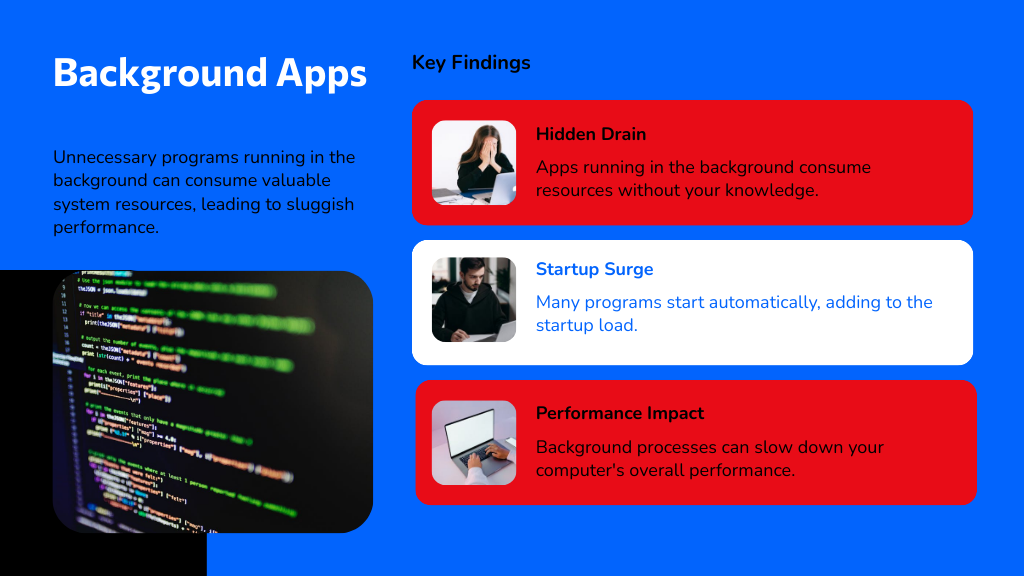
You can do this via the task manager, where you'll see a list of programs under the 'Startup' tab. Pruning this list can give your computer a noticeable performance boost.
If your computer's operating system settings aren't optimized, you might experience reduced performance.
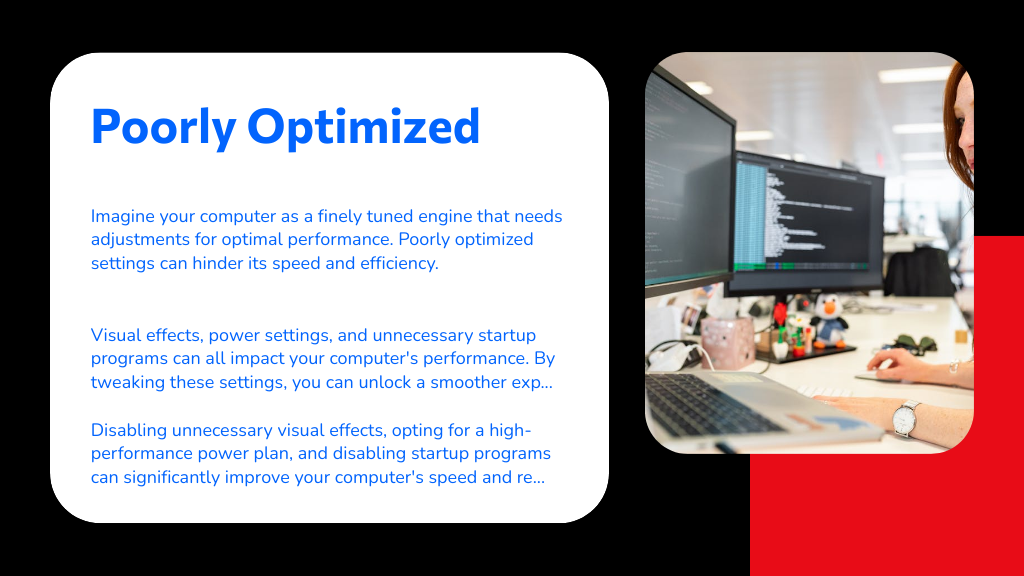
Here are a few tweaks you can make to enhance your system's efficiency:
Why does your computer still lag despite ideal system settings? Often, the culprit is slow internet or network issues.
Even with a high-speed plan, various factors can throttle your connection speeds. For instance, network congestion during peak hours can slow down your browsing and streaming. Similarly, if you're far from your Wi-Fi router or if there are walls and other obstructions, your connection strength and speed can drop considerably.
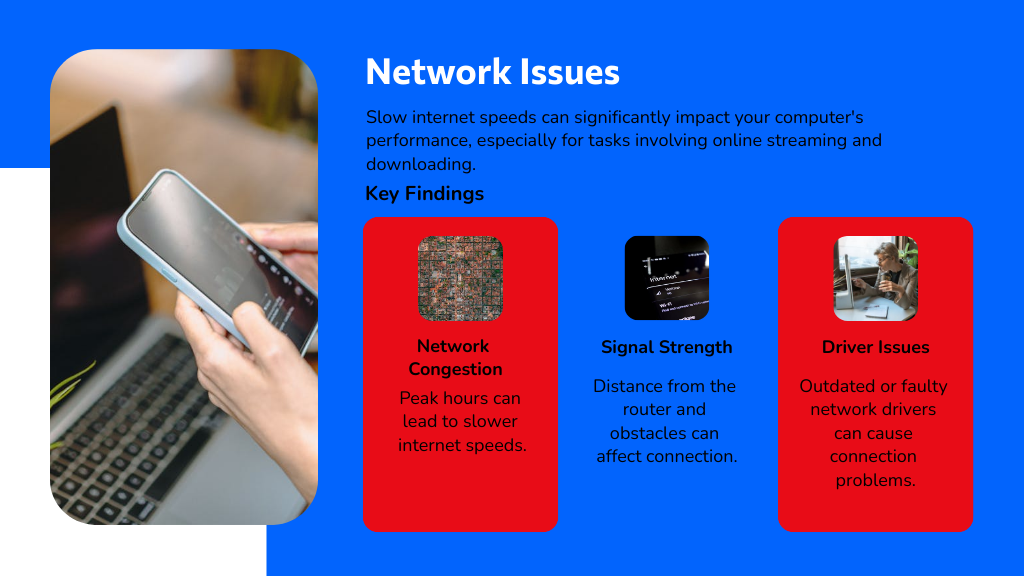
Moreover, outdated network drivers or improperly configured router settings can also degrade your internet performance.
To address these issues, consider upgrading your router, repositioning it for better coverage, or connecting directly via Ethernet. Check for updates for your network adapters and verify your bandwidth isn't being hogged by background apps.

So, you've checked everything — your system's bloated like a holiday turkey, your RAM's gasping for air, and your hard drive's as packed as a rush-hour subway. Yet, here you are, wondering why your computer's crawling slower than a snail on a lazy day. Maybe it's time to admit, amidst the nostalgia of outdated software and the symphony of background apps, that the simplest fix might just be letting go and upgrading. Who knew, right?
Your email address will not be published. Required fields are marked *